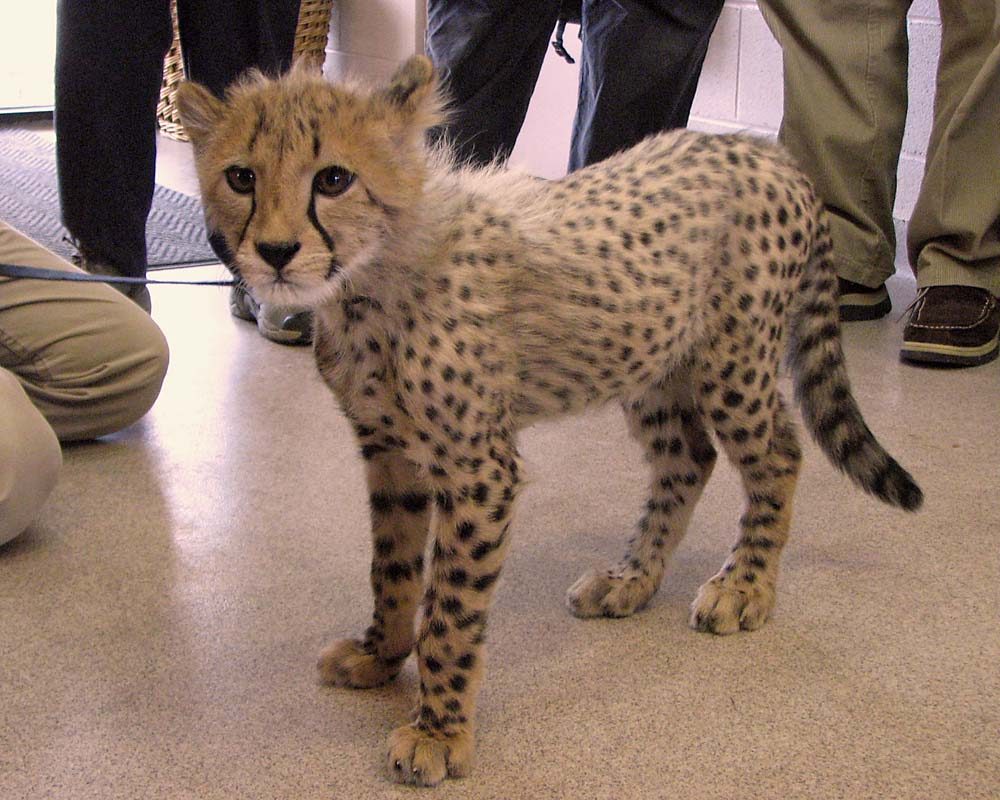
A young cheetah was captured by authorities in the Al Sakhama area, north of Doha, this week after it apparently fled from its owner, an official at the Ministry of Environment (MOE) has said.
The Department of Environmental Protection captured the three-month-old cub, put it in an iron cage and transferred it to wildlife authorities “to keep it in a safe place until (legal) procedures are completed,” according to a statement published by the MOE.
An official told Doha News that the animal’s owner is not known and that the case has been referred to the public prosecutor’s office for further investigation.
It is illegal in Qatar to keep wild animals captive. The perpetrator could face a maximum of six month in prison and a fine ranging from QR1,000 to QR10,000 under Qatari law.
The MOE official said that the cub didn’t cause much trouble for residents in the area because of its young age and the quick response from authorities, who rarely encounter such incidents:
“These incidents are not very common. We get complaints about them maybe every two or three years,” the official said. “It’s mostly common among some who collect (wild cats) as a hobby,” the official added.
Previous incidents
This week’s case is the latest example of the ongoing challenges authorities face in curtailing the practice of keeping wild animals as pets in Qatar and elsewhere in the Gulf.

Photographs have been posted on social media over the years showing owners flaunting the big wild cats around town, sitting in the passenger seat of SUVs and speed boats.
Late last year, the property manager of The Pearl-Qatar, United Development Co. (UDC), confirmed to Doha News that a lion and a cheetah had been found in separate incidents on the artificial island.
”In both cases, UDC issued breach notices to the owners warning them to remove the animals immediately, and both animal pets were removed immediately,” UDC spokesman Roger Dagher said.
And in the past, Qatar Living has featured adverts for the sale of these potentially dangerous animals, with price tags of up to QR40,000.
Government warnings
Months ago, the Ministry of Interior reminded residents of the dangerous repercussions of keeping large, wild animals as pets.
The MOI noted that while some animals may appear domesticated, they are innately wild and can suddenly “turn” on their owner or another person nearby without warning. In a Facebook post, the ministry continued:
”These hobbies involve serious consequences as the responsibility of the person who pets them goes beyond to other people that reside in the neighborhood or the area as well as those (who) visit parks or open recreational areas.
It as well (amounts to a) violation of the prevailing laws that prevent terrorizing innocent people or frightening them. These animals cannot be trusted as they are by nature wild and this wild nature cannot be changed by home environment.”
Meanwhile, in July last year, the Convention on the Trade in Endangered Species (CITES) called on governments in Qatar and the GCC to step up action against the fashion of raising these big cats as household pets.
It is illegal to internationally trade in live cheetahs, under Article III of the CITES Convention, which Qatar and other GCC countries have signed.
The CITES warning came just days after a Filipina housemaid in Kuwait died, when she was attacked by a lion that was kept as a pet in the house in which she was working.
Thoughts?







